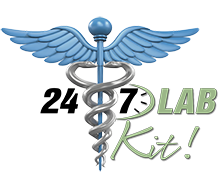Does Health Insurance Cover STD Testing
If you engage in sexual activity or not, you undoubtedly learn about sexually transmitted diseases (STDs). This may have been in your first Sex Education lesson as a preteen. These diseases are also known as sexually transmitted infections (STIs).
What are STDs and STIs
The World Health Organization (WHO) states that STDs or STIs are made up of “more than 30 different viruses, bacteria, and parasites.” These diseases are primarily transferred through sexual contact and oral sex.
It’s also crucial to remember that non-sexual methods, such as blood or blood products, can potentially transfer STDs.
Does health insurance cover STD testing?
In an idealistic situation, the explanation would be a straightforward Yes or No, but in reality, the response is an unsatisfactory “Most of the time.” It’s never simple.
There are various contributing aspects, as well as requirements connected to the Affordable Care Act (ACA), that affect whether or not your health insurance will pay for an STD test.
The Affordable Care Act’s key goals include reducing waste and improving healthcare access.
Additionally, primary and preventative care is the way to go because they are significantly less expensive than treating sick people after they become ill.
Fortunately, the majority of STD testing fits into one of these classifications.
When can STDs be covered?
STD testing is where things might get complicated as it may not be covered. This is based on your gender, age, and other risk factors.
Chlamydia, syphilis, HIV, and gonorrhea screenings are considered preventative; therefore, they are often covered by insurance.
EVERY health insurance policy must pay for HIV testing for anyone between the ages of 15 and 65 or younger or older if the individual is at high risk for HIV.
Gonorrhea, chlamydia, and syphilis STD testing are frequently free. Nevertheless, there are several circumstances in which you can be required to pay a copay, a part of the cost, or the entire amount.
Will my insurance provider cover diagnosis testing and preventive screening?
Your health insurance plan will cover sexually transmitted diseases based on whether the process is a diagnostic test or a preventive screening strategy. Any asymptomatic STD screening will be regarded as a preventative approach. In other terms, a test performed on a patient who exhibits no symptoms of an illness is referred to as screening. However, if the person shows symptoms or discomfort, the situation changes since the likelihood of a diagnosis will increase considerably.
The easiest approach to determine if your carrier offers coverage against STDs is to read the policy’s fine print or get in touch with them by phone or email.
The Benefits of STDs cover
The overall cost of getting tested is significantly decreased due to STD coverage being included in health insurance policies. If the test’s high price is a hindrance, it is preferable to get tested with the appropriate insurance coverage rather than not at all.
All health insurance policies do not cover the costs associated with testing for and treating STDs, which is important to keep in mind. As a result, it is crucial to read your health insurance policy’s fine print.
What will be the cost of an STD test without insurance
Depending on the test type and whether you decide to take the test at a clinic or home, the price of an STD test without coverage will change. Without coverage, an STD test at a clinic or doctor’s office could cost you hundreds of dollars.
If you don’t have a health cover plan, you could be better off doing an STD test at home. You can opt for 247labkits. We provide combination test kits, which are less expensive than buying separate test kits and tests for multiple infections.
Who can see my test result if I use insurance coverage
Any examination paid for by coverage may end up in your medical file and be used by health insurers in the future. Results are directly sent to the insurance provider and frequently made available to its affiliates.
Insurance companies frequently send the principal account holder an Explanation of Benefits (EOB) for accounting purposes, which may contain details regarding tests other account members have had. Anyone who uses a family insurance policy could, therefore, be mailing their test results home. Additionally, a lot of insurance companies have online portals where you may access the tests you’ve had and the findings.
Conclusion
It’s crucial to have regular STD screenings, especially if you are sexually active. Your insurance provider is the best person to ask for information on any concerns about coverage or related medical expenses.




Comments are closed